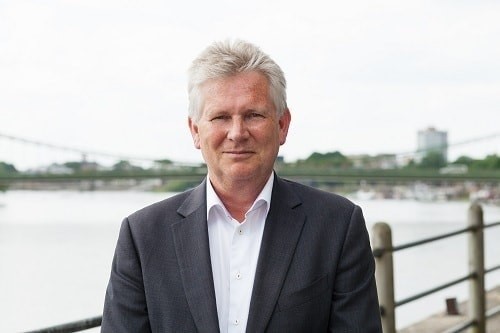The autumn of 2019 seems like a different age. When I spoke at our annual conference in October, I felt obliged to refer to Brexit, although the debate had wearied us all.
Opinion
Time to focus on workplace wellbeing
And, when I talked of challenges on the horizon, I cannot pretend that a global pandemic was high on my list of concerns. Instead I was determined that in 2020 we would ensure workers’ rights were protected, however Brexit came about and whoever was in government.
And I wanted to bring to life a long-held ambition to develop a new approach to delivering workplace wellbeing. So, as we approach the autumn of 2020, after a very challenging spring and far from ideal summer, I am glad that a big part of our plans for the year are now coming to fruition.
 Mike Robinson: "Time to focus on workplace wellbeing."
Mike Robinson: "Time to focus on workplace wellbeing."
I hope that the coronavirus experience has reset some attitudes to workers’ rights. The government has recognised that public sector workers need a pay rise and the Chancellor Rishi Sunak echoes the views of many when he says “these past months have underlined what we always knew, that our public sector workers make a vital contribution to our country and that we can rely on them when we need them.”
I hope that the government will bring forward the long-awaited employment bill later this year and I hope they offer the same recognition to frontline workers beyond the public sector. It’s quite right to clap for our carers, but we should also be clapping for those working in retail and in distributions centres, collecting our waste and manufacturing ventilators and transporting PPE.
Many people reading this magazine will have been working from home, but that has not been the universal experience. I hope that this crisis will help accelerate a trend towards more dignity for workers, especially the lowest paid, just as it has reminded us of our obligations to the NHS.
So, I hope that a renewed focus on employee wellbeing can be another legacy of the pandemic. When we were lobbying the political parties ahead of the general election, we made clear that parity for mental health and physical health should be all of our ambitions. For an organisation like the British Safety Council, steeped in health and safety, protecting workers and reminding employers of their duty of care, expanding that remit to include mental health and wellbeing has been a natural evolution.
Just as bad health and safety practices are ultimately costly for employers, poor mental health at work costs UK employers up to £45bn a year. In 2017/18 15.4m working days were lost as a result of mental health issues, an increase from 12.5m in 2016 according to the Health and Safety Executive (HSE).
Over half of all days off ill are attributed to mental health. And yet, only a third of private sector employees have a specific wellbeing strategy.
In developing our wellbeing programme – Being Well Together – we looked at why so few organisations had wellbeing plans. Some leaders think it’s too time-consuming, others that workers won’t engage. But that’s short-sighted.
The next generation of employees are more aware of and more comfortable talking about mental health, diet, financial challenges and addiction than ever. They expect employers to do more than just offer 20% off the local gym or to put out a bowl of fruit once a week.
The best employers had good workplace safety practices long before the Health and Safety at Work Act 1974. The best employers today are embracing wellbeing strategies that take a holistic approach to their employees’ needs.
Perhaps a new law won’t be needed, but the British Safety Council will be campaigning for workers’ wellbeing with just as much vigour as we have always campaigned for workplace health and safety. And it’s just as important that we do.
Mike Robinson FCA is chief executive of the British Safety Council
OPINION

Is workplace health safe in 2026?
By Kevin Bampton, BOHS on 10 February 2026
UK Government efforts to boost the economy and employment levels through approaches such as deregulation pose a serious threat to the country’s workplace safety standards and the health of our workforce.

How stress and burnout will shape the workplace in 2026
By Charlotte Maxwell-Davies, Mental Health UK on 09 February 2026
Burnout is rapidly becoming one of the nation’s most significant workplace challenges. It is emerging as a defining issue for organisations and wider society, as the UK contends with a long-term sickness crisis driven by poor mental health. Stress can be motivating in short bursts, but when left unmanaged it contributes to work absences and lost productivity, as well as presenting a clear risk to the health of workers.

A new year, a new approach to risk?
By Mike Robinson FCA, British Safety Council on 02 February 2026
The rulebook is becoming obsolete faster than we can rewrite it. While bureaucracies labour to update yesterday’s regulations, the world of work transforms daily.



